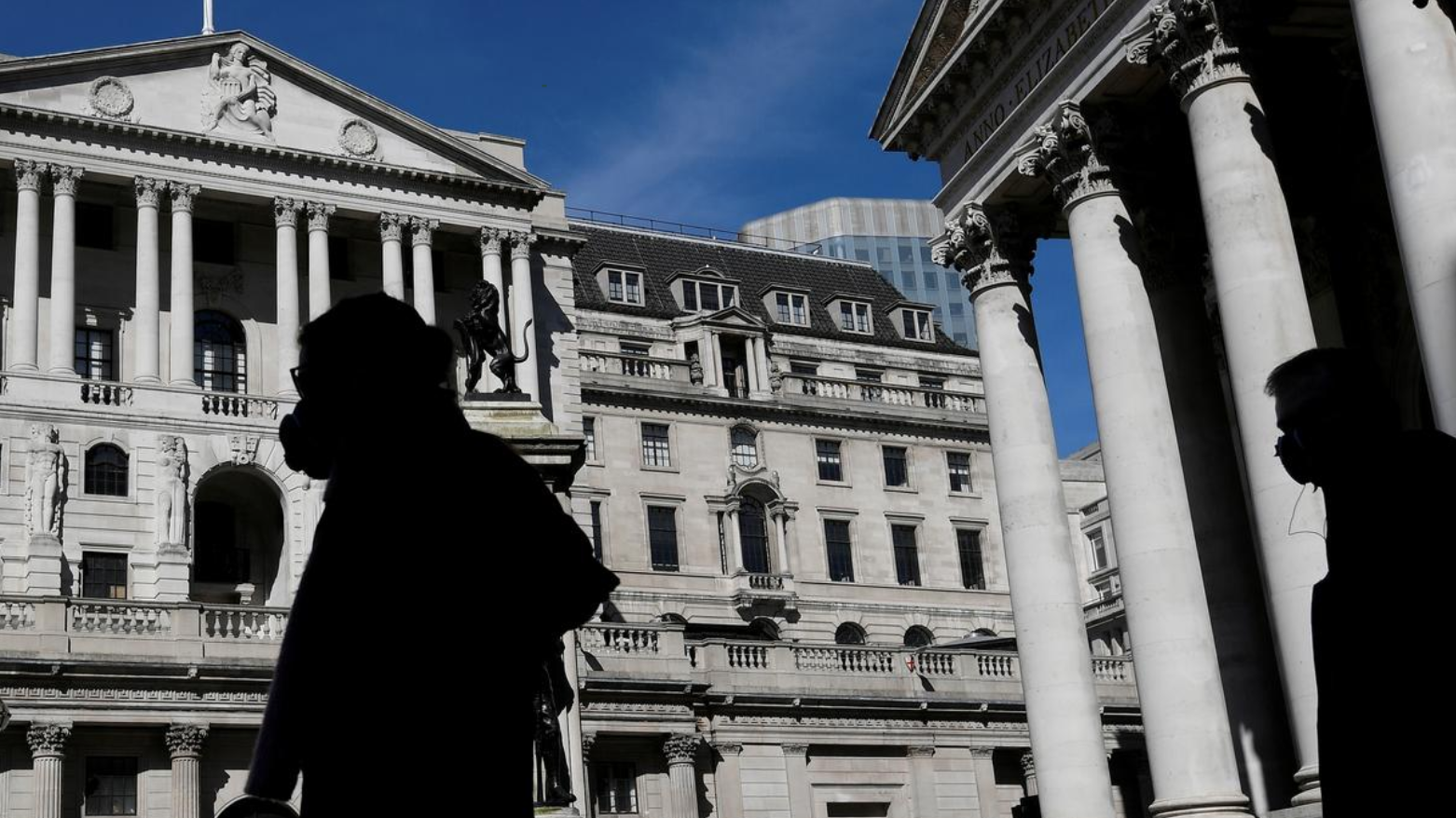The Bank of England (BoE) held off further stimulus measures but said it was ready to take fresh action to counter the coronavirus hammering which could cause the country's biggest economic slump in over 300 years in 2020 before a bounce-back in 2021.
The BoE said its Monetary Policy Committee kept Bank Rate at its all-time low of 0.1 percent and left its target for bond-buying, most of it British government debt, at 645 billion pounds (797 billion U.S. dollars).
However, two of its nine policymakers - Michael Saunders and Jonathan Haskel - voted for 100 billion pounds' worth of more bond-buying firepower.

People wearing masks walk past the Bank of England, as the spread of the coronavirus disease (COVID-19) continues, in London, Britain, March 23, 2020. /Reuters
People wearing masks walk past the Bank of England, as the spread of the coronavirus disease (COVID-19) continues, in London, Britain, March 23, 2020. /Reuters
In what it called an illustrative scenario, the BoE said it saw a plunge of 14 percent in Britain's economy in 2020 followed by 15 percent bounce-back in 2021.
Such a scenario would require very significant monetary and fiscal stimulus, it said.
Many economists expect the BoE to increase its asset purchase program next month, before the extra 200 billion pounds it gave itself in March is exhausted by the furious pace of its buying of British government debt.
"However the economic outlook evolves, the Bank will act as necessary to deliver the monetary and financial stability that are essential for long-term prosperity and meet the needs of the people of this country," Governor Andrew Bailey said.
"This is our total and unwavering commitment."
Both decisions announced on Thursday were in line the forecasts of most economists in a Reuters poll.
Britain's government has already rushed out spending and tax measures worth about 100 billion pounds to try to counter the effect of its coronavirus lockdown.
The BoE said it expected a 25 percent plunge in British gross domestic product in the April-June period with the unemployment rate more than doubling to nine percent.
Sterling rose after the central bank's announcement, initially gaining half a cent against the U.S. dollar before falling back a bit.
Last week, the U.S. Federal Reserve restated a pledge to keep interest rates low and continue offering trillions of dollars in credit as long as the economy needs it, and the European Central Bank kept the door open to further stimulus.
Source(s): Reuters